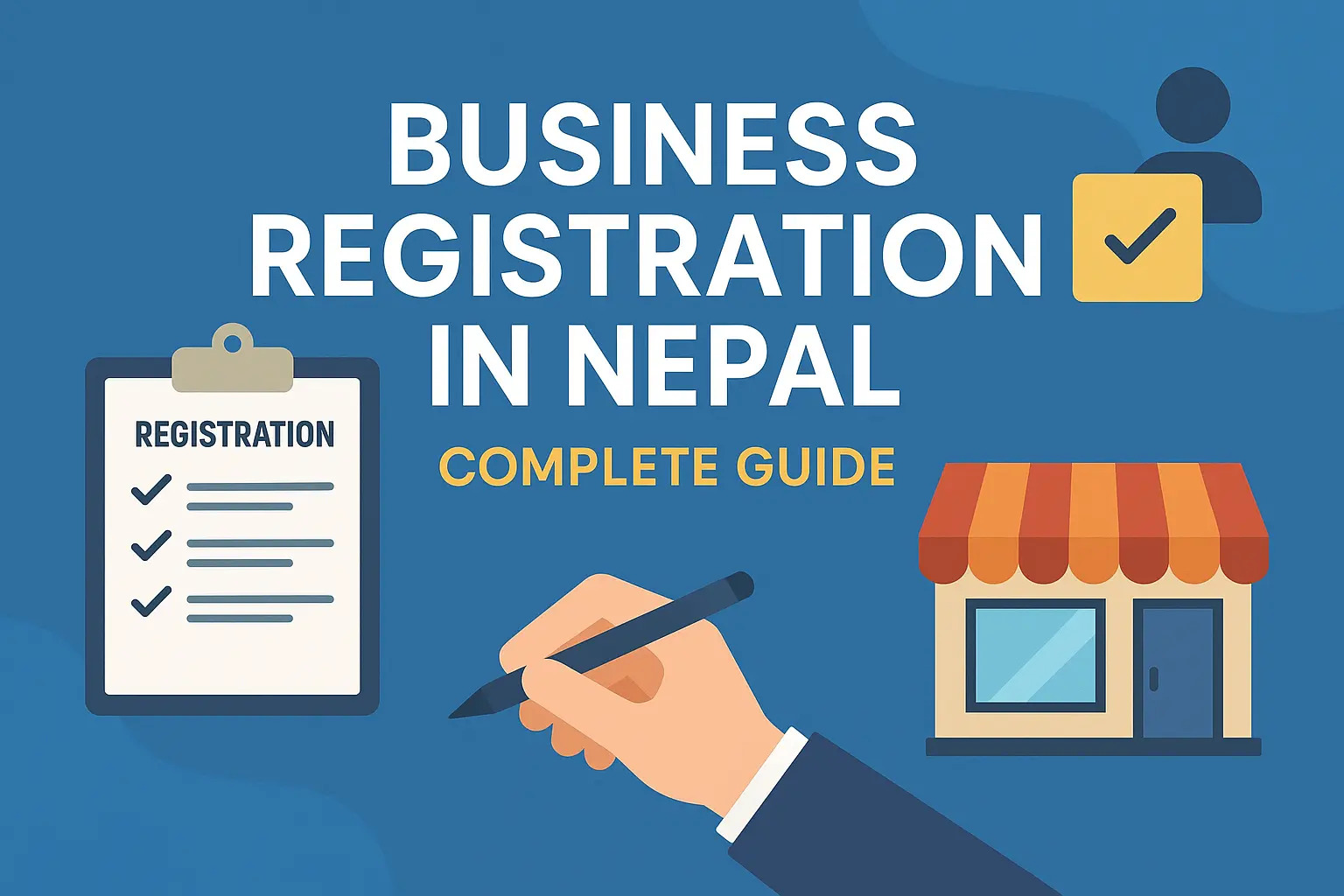Introduction
Starting a business in Nepal is an exciting step, but many entrepreneurs struggle with one big question: How do I register my business and what structure should I choose?
Whether you’re considering a sole proprietorship, partnership, or company, the decision will impact your legal responsibilities, tax obligations, and how others perceive your business. This guide explains the Nepal business registration process step-by-step—covering where to register, the pros and cons of each structure, and the rules for PAN and VAT.
1. Sole Proprietorship – The Simplest Way to Start
A sole proprietorship is the easiest and most common type of business in Nepal. Examples include grocery shops, tea stalls, and small eateries.
Where to Register a Sole Proprietorship in Nepal
- Ward Office (Local Government) – primary registration
- Internal Revenue Office – for PAN (Permanent Account Number)
- Depending on the business type, you may also need registration with:
Advantages
- 100% decision-making control
- Simple registration process
- Minimal compliance requirements
Disadvantages
- Unlimited liability – Your personal property can be seized if the business cannot repay debts.
- The owner and business are legally considered the same entity.
2. Partnership Firm – Shared Resources and Responsibility
A partnership firm is ideal if you plan to start a business with friends or co-investors.
Requirements for Partnership Registration in Nepal
- At least two partners
- A written partnership agreement (“Kabuliat”) specifying:
- Capital contribution of each partner
- Profit/loss sharing ratio
- Roles and responsibilities
Where to Register a Partnership Firm
- Ward Office – local registration
- Internal Revenue Office – for PAN
- Relevant department based on business nature:
Advantages
- Shared skills, resources, and financial risk
- Greater operational capacity than sole proprietorship
Disadvantages
- Joint liability – All partners are personally responsible for debts or legal violations caused by any partner
- Trust and a solid partnership agreement are essential
3. Company Registration in Nepal – Private vs. Public Limited
For larger and more formal business operations, company registration under the Companies Act is the way to go.
Where to Register a Company in Nepal
Private Limited Company
- 1 to 101 shareholders
- Cannot sell shares to the general public
- Suitable for small to medium businesses
Public Limited Company
- At least 7 founding shareholders
- Can issue an IPO (Initial Public Offering) to raise capital from the public
- Best for large-scale operations
Advantages of a Company
- Limited liability – Your personal assets are protected
- Separate legal entity – Can own property, enter contracts, sue or be sued in its own name
- More credibility with banks, investors, and customers
Disadvantages
- More compliance requirements, especially for public companies
4. Local Registration & Tax Obligations
No matter which structure you choose:
- Ward registration is mandatory for operating at the local level
- Required for obtaining a PAN, opening a bank account, and paying annual local business taxes
- If renting business premises, a rental agreement and rental tax clearance are required
5. PAN & VAT Registration in Nepal
PAN (Permanent Account Number)
- Mandatory for all businesses
- Required for issuing invoices, paying income tax, and conducting bank transactions
VAT (Value Added Tax)
- Mandatory if your turnover exceeds:
- Benefits of VAT registration:
- Can issue VAT bills
- Can claim Input Tax Credit on purchases
- VAT is an indirect tax – the final consumer pays it, businesses only collect it for the government
Final Thoughts – Choosing the Best Business Structure in Nepal
Your choice of business structure should depend on:
- Size and growth plans of your business
- Number of people involved
- Level of financial risk you’re willing to take
Quick Recap:
- Sole Proprietorship → Easy, low cost, but unlimited liability
- Partnership → Shared resources, but joint liability
- Company → Limited liability, more credibility, but higher compliance
Remember, the structure you choose affects not only your internal operations but also how customers, banks, and investors see your business. In many ways, it’s the first building block of your long-term success.

